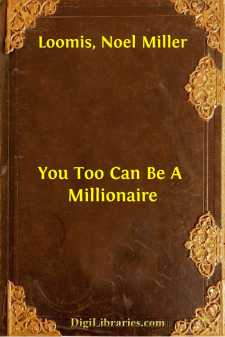Categories
- Antiques & Collectibles 13
- Architecture 36
- Art 48
- Bibles 22
- Biography & Autobiography 813
- Body, Mind & Spirit 142
- Business & Economics 28
- Children's Books 17
- Children's Fiction 14
- Computers 4
- Cooking 94
- Crafts & Hobbies 4
- Drama 346
- Education 46
- Family & Relationships 57
- Fiction 11829
- Games 19
- Gardening 17
- Health & Fitness 34
- History 1377
- House & Home 1
- Humor 147
- Juvenile Fiction 1873
- Juvenile Nonfiction 202
- Language Arts & Disciplines 88
- Law 16
- Literary Collections 686
- Literary Criticism 179
- Mathematics 13
- Medical 41
- Music 40
- Nature 179
- Non-Classifiable 1768
- Performing Arts 7
- Periodicals 1453
- Philosophy 64
- Photography 2
- Poetry 896
- Political Science 203
- Psychology 42
- Reference 154
- Religion 513
- Science 126
- Self-Help 84
- Social Science 81
- Sports & Recreation 34
- Study Aids 3
- Technology & Engineering 59
- Transportation 23
- Travel 463
- True Crime 29
Nine Men in Time
Description:
Excerpt
The receivers, two of them lawyers, had long faces when they sat down across from my desk in the office of the Imperial Printing Company.
"Frankly, Mr. Shane," said the older one, "it is a very grave question in our minds whether we should try to continue to operate the business or whether we should close the plant and liquidate the machinery and equipment the best we can."
I was stunned. "I don't understand," I said helplessly. "We've been doing a nice business—and at a profit—in the year I've been here." It was my first big job, and I wanted to make good. I thought I had made good, but here they were jerking the floor out from under me, and I couldn't make any sense out of it.
"Well," said one, "the business isn't showing the profit we expected."
"What you need is a used-car lot," I said pointedly.
The elder man cleared his throat. "Now look, Mr. Shane, suppose we say three months."
"What do you mean—three months?"
"We'll allow you to go ahead for three months. If the business doesn't show a distinct upturn by then—" He raised his eyebrows.
I swallowed hard. So that was it, then.
They even had the date set for the execution, and I knew they intended to go through with it. Only a revolution would change that.
I wanted that job; it was my chance to make a name for myself. If they should close the plant now, I'd have a black eye. You can't go around asking for a job and saying, "But I was making money for them." They'll wonder what else was wrong.
I thought I knew why they were so willing to close the plant; it was part of an estate, and the way things were, it took a lot of their time each month for not too big a fee. But if the estate should be liquidated—well, figure it out yourself. This business was all mixed up between an administratorship and a receivership, and the attorney's fees for liquidation would be a percentage of a hundred-thousand-dollar shop. It could run to a nice sum. They'd sell out, collect their fee, and forget it. A nice clean deal for them. And no more worry.
That is what I was up against, so perhaps it was inevitable that I should find Dr. Hudson—Lawrence Edward Hudson. That was 1983, really about the beginning of the scientific age in industry, and I dug this idea up out of the back of my head where it had been for some time. Dr. Hudson was the result. I did not label him efficiency-expert, for printers have always been notoriously allergic to that title. I called him production-engineer.
He was a small, thin-faced man with a face that seemed to all flow into a point where his nose should have been, and he started talking things over with me before he got his coat off.
"Printing," he said, "is really the backward industry. There has been no basic advance since the invention of the linecasting machine around 1890, and possibly the development of offset printing."
"That," I said, "is why you are here—to bring out something startling."
"Well," he said, "you've heard the old one about the man who had something to do with each hand, and if you'd give him a broom he could sweep out the shop, too?" He leaned forward, his nose jutting at me, and said impressively, "Mr....




